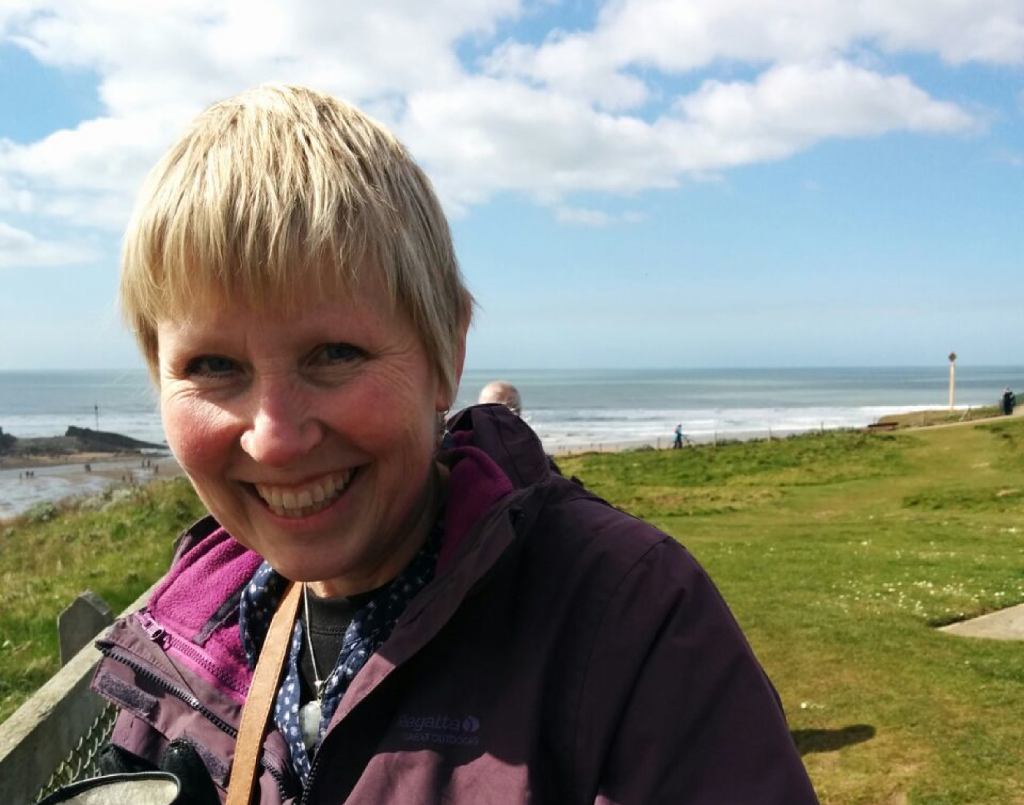Home » Five things I’ve learned: Ellie Stacey, Community Sponsorship volunteer, Cornwall

Share
Ellie Stacey has been at the forefront of Community Sponsorship since its launch in 2016. A former head teacher, she played a key role in setting up Bude Refugee Support Group before moving south and joining Falmouth and Penryn Welcome Refugee Families. She also finds the time to mentor other groups in the southwest. Here Ellie shares some of her learning about volunteering and resettling a refugee family.
There are lots of professional skills and experience in the average Community Sponsorship group: teachers, health workers, accountants. While it makes sense to utilise these skills, Ellie has learned that not everyone wants volunteering to replicate their day job.
“You get people coming along who may have a professional background, but as a volunteer they want to do something completely different,” says Ellie. “So if, say, a social worker joins the group, we’ll ask them, ‘What would you like to learn now?’”
One member of Ellie’s group relishes simple, repetitive tasks that others might find boring. As for Ellie, “I personally like cleaning other people’s houses – but I hate cleaning my own!”
The first refugee family welcomed to Bude initially lived in a three-bedroom flat belonging to a member of the Community Sponsorship group, who lived in the flat below. She decided to rent her property though an estate agent.
“This lady from our group offering her flat was fantastic. But living downstairs from your tenants isn’t always easy,” says Ellie. “Using the estate agent was helpful because it meant she had some distance. That’s been a real learning point that I’ve shared with other groups. Ideally the landlord shouldn’t get too closely involved in the resettlement, or define their role very clearly, because they need distance and perspective.”
Bude isn’t the most diverse of towns, so Ellie wasn’t too hopeful about finding interpreters to support the refugee family. But she needn’t have worried.
Through an organisation called Devon and Cornwall Refugee Support in Plymouth, the Bude group connected with an English teacher who also happened to be an interpreter. That person had friends and family members who spoke Arabic too. “We also discovered that the owner of the Indian restaurant in Bude spoke Arabic, because he approached us and offered to help,” says Ellie. “So that was a really useful connection.”
Preparing the house for their first family’s arrival, one group decided to install wooden floors downstairs. From their research they thought that the family would prefer flooring that they could sweep. But in reality the family found the wooden floors too cold, so the landlord had carpets put down.
Ellie is pleased that the family felt able to speak up about the flooring. “We don’t want families feeling compelled to say everything’s fine with the house if it’s not,” she says. “They should be able to say, ‘Actually, it would be better if we could have this or that.’ It’s quite delicate, but I think it’s really important to get to that point where families feel they can be honest with us. It is difficult though, as everyone is keen to please – families and volunteers. Our purpose as sponsors is to empower the family and to respect their choices.”
“One mustn’t assume everyone’s going to be great buddies just because they have the refugee experience in common,” says Ellie. “Though of course it’s nice if they are!”
Share
Read all news and insight from our initiatives
See Coverage of Reset UK in the press and media
Read our research projects and news
Come together locally to welcome a refugee family. Find out how Community Sponsorship helps refugee families in need build a new life in the UK with confidence and dignity.
There are so many ways to show your support. Find out more about how to get involved.
How do I sponsor a refugee family? How does the process work? Reset is here to support you every step of the way.
Wherever you are on the fulfilling and thrilling journey through Community Sponsorship, we have training courses, videos, articles and more, all designed to help your group and the family you support.
From drop-in sessions to UK-wide networking events, we bring together people and professionals involved in all stages of the Community Sponsorship journey.
Our toolkits are designed to make it easy for you to support community-led welcome, including resources for local groups, support for potential lead sponsors, and practical advice for Local Authorities.
Research, monitoring and evaluation are essential for making evidence-based decisions that help community-led welcome to flourish.
Make an extraordinary difference to the lives of people who have lost everything by signing up to our (free) Landlords for Refugees register.
Not everyone can donate their time, so if you are choosing to donate money today instead or as well as, thank you. Your generosity is vital to the work we do support community-led welcome of refugees.
We empower volunteers to welcome refugees into communities across the UK, and we’re inviting you to be part of our movement. Together, let’s shape a better future.
Help others by sharing your account. Why were you attracted to community-led welcome? What worked, what did you learn, what has the experience been like for you?
Community-led welcome isn’t about one organisation. We work with a range of organisations and individuals to deliver our work and to grow the movement.